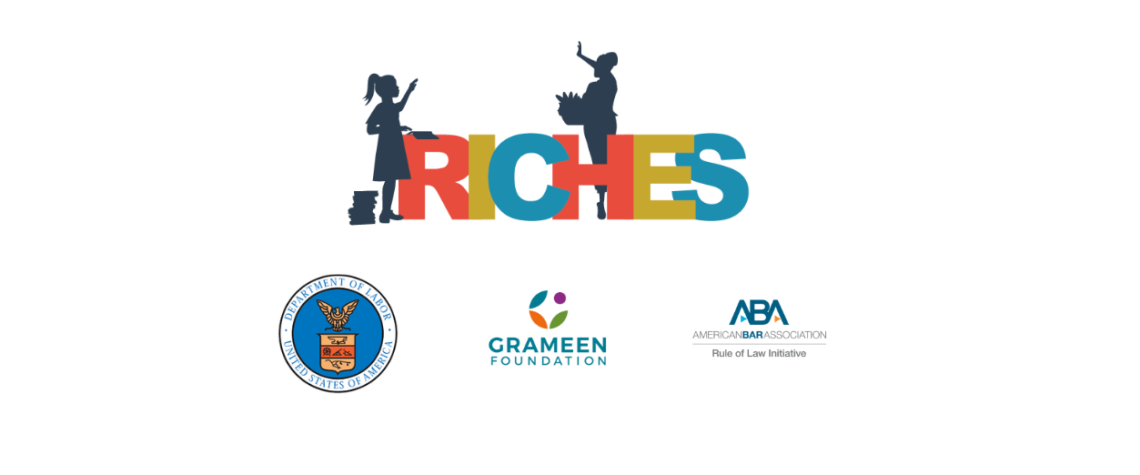Make your 2X MATCHED gift today!
This week only: Every $1 will be matched with $2 to empower women worldwide.
This week only: Every $1 will be matched with $2 to empower women worldwide.
Posted on 02/25/2022

Those of us involved in women’s economic empowerment (WEE) initiatives celebrate Women’s History Month as a time to elevate global understanding of what we advocate 365 days a year: the vital role of women entrepreneurs to the well-being of households and communities around the world.
This Women’s History Month, we are especially privileged to announce the completion of the 4.5 year, 12-country RICHES Project that offers WEE actors, such as financial service providers and women's economic empowerment actors, a new online toolkit to help ensure their critical work lifts women entrepreneurs without causing unintentional negative consequences. RICHES (Reducing Incidence of Child Labor and Harmful Conditions of Work in Economic Strengthening Initiatives) was conducted by Grameen Foundation in partnership with the American Bar Association Rule of Law Initiative, and funded by the U.S. Department of Labor.
Evidence supports that when women entrepreneurs generate their own income, they invest it in their households and local economies creating ripple effects that improve livelihoods, families, and communities. It is also well established that WEE initiatives have many positive impacts, such as poverty alleviation, increased household resilience, and education of children.
Conversely, responsible WEE actors are also aware of the potential unintended negative consequences of their work. They follow “Do No Harm” practices to protect women and families from over-indebtedness, increased labor burdens, gender-based violence, and other negative impacts.
Many, however, may be less aware of child labor as an unintended consequence of WEE activities. Yet, research demonstrates that when women struggle to balance growing a business with unpaid household and caregiving tasks, they often turn to those closest for help – their children. This can mean pulling children out of school or putting them at risk of harm to their mental, physical, and social development.
To expand “Do No Harm” practices and better understand the dynamics of child labor in WEE initiatives, the RICHES project began by preparing a Pre-Situational Analysis Report (PSA). Building on lessons from the PSA, the RICHES team developed a toolkit of 46 tools, some of which have been digitized, to help WEE actors and their participants mitigate the risk of child labor. The RICHES Toolkit was piloted primarily in El Salvador and the Philippines with some additional piloting occurring across Latin America, the Caribbean, Sub-Saharan Africa, and Asia to ensure their global applicability. Some of the practices promoted by the RICHES project have been integrated into the Universal Standards of Social and Environmental Performance Management, which are considered the “gold standard” for assessing a financial service providers’ commitment and practices for putting clients at the center of every management decision.
We can think of no better way to celebrate Women’s History Month than by helping dedicated WEE actors around the world ensure no harm is done as they work to empower women to achieve their dreams and lift their communities.
Funding is provided by the United States Department of Labor under cooperative agreement number IL-31469. 100% of the total costs of the project or program is financed with federal funds, for a total of $1,872,000 dollars. This material does not necessarily reflect the views or policies of the United States Department of Labor, nor does mention of trade names, commercial products, or organizations imply endorsement by the United States Government.